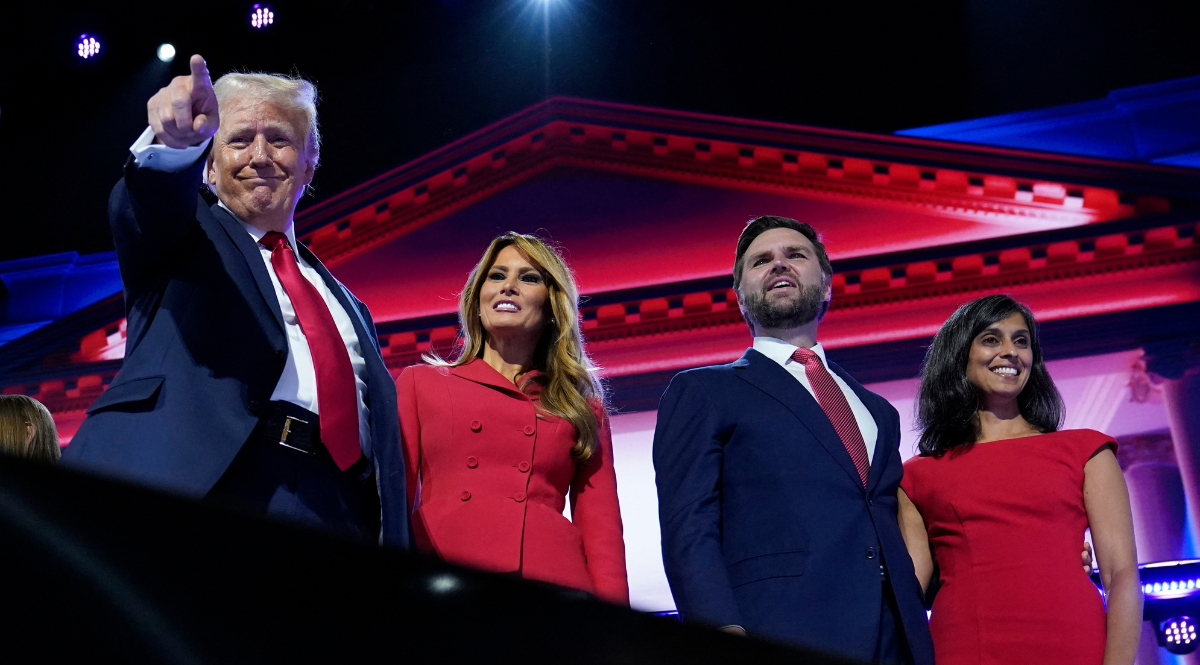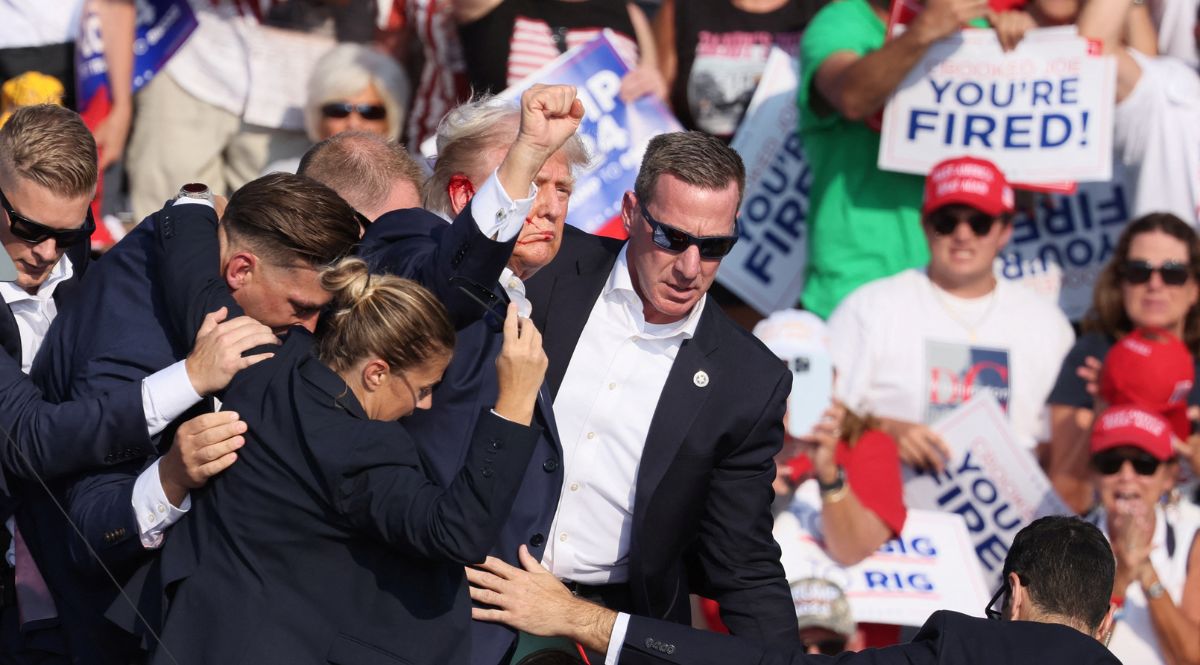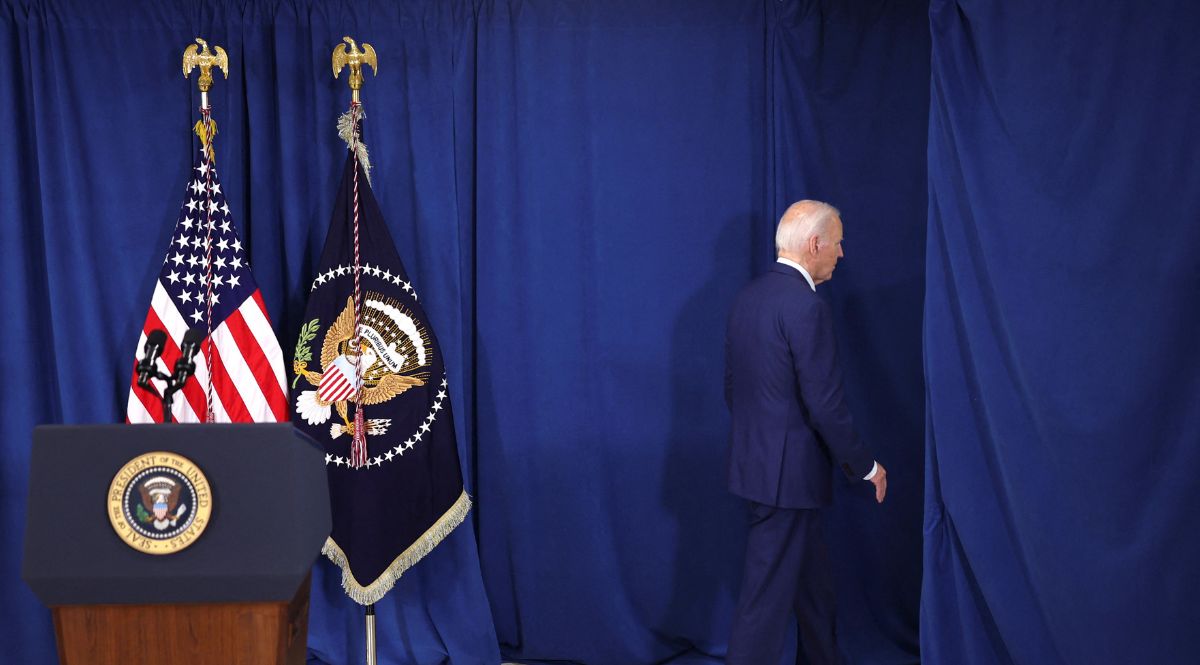Republicans Unite Around Trump at Convention
At the Republican National Convention in Milwaukee (15-18 July), former President Donald Trump received the party’s nomination as its candidate for president of the United States. Trump selected J.D. Vance as his vice presidential candidate. The convention demonstrated the unity of the Republican Party, confident of victory and with plans to bring tougher competition to states inclined to vote for Democrats.
 Elizabeth Frantz / Reuters / Forum
Elizabeth Frantz / Reuters / Forum
What were the main theses of Trump’s acceptance speech?
In his first speech since the assassination attempt, the former president initially appealed for unity among the American people and gave a personal account of the attack. Later, however, he moved on to his traditional cross-section of election themes, not refraining from attacks on Democrats. The convention centred on the theme of “making America prosperous, safe, strong and great again”. Trump focused on strengthening border security and countering irregular immigration, as well as fighting crime and drugs. In marked difference from traditional mainstream Republicans, he asserted the need to protect social and healthcare systems. As in his first term, he called for a change in approach to the free market economy. He proposed new tariffs and more trade agreements with other countries (along the lines of the USMCA concluded in 2020) to safeguard U.S. manufacturing capacity and jobs, while regulating selected areas of trade. In foreign policy, Trump referred to the war in Ukraine, declaring that he would end it with “one phone call”. At the same time, he pointed to Russia as a threat to the U.S. and condemned the stationing of its ships in Cuba. Despite his negative attitude toward China and acknowledging the military and economic challenges related to it, Trump said Taiwan should bear more of the cost of U.S. support (mostly based on arms contracts).
What will be the Republicans’ election strategy?
Trump’s nomination confirmed his position as the undisputed leader of the Republicans and the long-term association with Trumpism. This will mark a further departure from the traditional programme associated with the Republican Party. Also, the selection of J.D. Vance as the vice presidential candidate reinforces the dominance of this ideological direction. He gives the Republicans’ more appeal among independent voters in Rust Belt states, whose economies have suffered from deindustrialisation, and in mobilising the far-right electorate. The Republican Party also seeks to make more states competitive, including swing states such as Arizona, Georgia, North Carolina, Michigan, Nevada, and Wisconsin. The Republicans will strengthen their campaigns in states considered somewhat likely —though not certain—to vote for Democrats, including Minnesota, New Jersey, New Mexico, and Virginia. Their main thrust will be to try to link Vice President Kamala Harris, who is the favourite to replace President Joe Biden after he withdrew his candidacy, to the current administration’s decisions, which Trump and the Republicans portray as harmful to Americans. The main issues will be immigration and protecting the border with Mexico, cited by voters as some of the most important topics in this election cycle. Administration policies in these areas were indeed entrusted to Harris, but there has been little visible improvement, which has contributed to the deterioration of the vice president’s ratings. At the same time, the Republicans assert that the Biden administration has failed to take other steps to deal with the purported migration crisis throughout its term, departing from measures enacted under Trump’s government. For this reason, Harris will be blamed for ignoring the problem throughout her term.
What condition is the Republican Party in ahead of the elections?
The party has largely rallied around Trump, an effect reinforced by the assassination attempt. A clear sign of this was the endorsement of Trump by his most serious challenger in the primaries, the former governor of South Carolina and U.S. ambassador to the United Nations, Nikki Haley. While not all key Republicans have explicitly endorsed Trump or agree with the direction the party is taking, Trumpism will be its ideological driving force in the coming years. The relevance of traditional conservatism will continue to erode, and Trump’s critics in the party will be pushed to the margins and those who are politicians replaced in primaries by a new generation raised on Trumpism. The mostly unified Republican Party and rallying around its presidential candidate contrasts with the Democratic Party, which saw mounting pressure on Biden to withdraw from the race since the first, and so far only, presidential debate, and which now must unite around a new candidate, likely Harris.
How might the Republicans’ actions affect the Democrats’ campaigns?
The nomination of Trump-Vance has reinforced the belief in the Democratic Party that Harris is its best presidential candidate. This is both for formal and financial reasons (she was part of the Biden campaign and can access its donations, and he has endorsed her), but also to voter enthusiasm about her candidacy (the Harris campaign and Democratic National Committee raised at least $81 million within 24 hours of Biden’s withdrawal). Trump’s choice of Vance also influences the Democrats decisions on their vice presidential candidate. It could prompt Harris and her staff to choose one of the governors of the Rust Belt states, such as Josh Shapiro of Pennsylvania or J.B. Pritzker of Illinois. Another option is someone with good electoral chances in one of the swing states, such as Pennsylvania or Arizona, which former astronaut and Senator Mark Kelly represents. He received 44,000 more votes in 2020 than Biden, who won that state’s presidential election (his victory over Trump was by just 10,500 votes).
The Democrats and their candidates are likely to strongly attack proposals for the radical reforms outlined in the “Project 2025” concept developed by the conservative think-tanks the Heritage Foundation and America First Policy Institute. They will likely constantly refer to this concept, citing specific details from it and arguing that it is a step too far for most voters. They will also use Harris’ prosecutorial experience to attack Trump as a convicted criminal (after a trial with a verdict on appeal).




.png)
